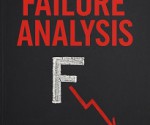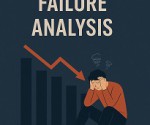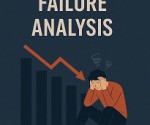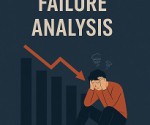HCS Main Exam Political Science Most Expected Questions Answer Writing Skill Development Programme 2017
HCS Main Exam Political Science Most Expected Questions Answer Writing Skill Development Programme 2017
HCS MAIN EXAM POLITICAL SCIENCE MOST EXPECTED QUESTIONS’ ANSWER WRITING SKILL DEVELOPMENT PROGRMME
Kushmanda Online/Offline Test Series for HCS Main Exam 2017
“Main Exam का positive result केवलउस स्टूडेंट्काहोताहैजोउससवाल (HPSC/UPSC मेंपूछागयासवाल) केजवाबकोएकबारपहलेहीलिखकरकिसीसहीमार्गदर्शक(Experienced Teacher) सेकरेक्टकराचुकाहै ” Abhi Sir
HCS MAIN EXAM 2017
POLITICAL SCIENCE AND INTERNATIONAL RELATIONS
TEST 1. General characteristics of Western political thought.Plato, Aristotle, Machiavelli,
TEST 2. Hobbes, Locke, Montesquieu, Rousseau, Bentham, J.S. Mill, T.H. Green,
TEST 3 . Hegel, Marx, Lenin , Mao-se Tung.
TEST 4. Nature and scope of political science. Significance of political theory. Elite and theories of Elite. Growth of political science as a discipline. Traditional vs. contemporary approaches. Behaviouralism and post behavioural developments. System theory and other recent approaches to political analysis. Marxist approach to political analysis. Power, authority and legitimacy. Different dimension of power. Theories of power in society.
The emergence and nature of the modern state. Sovereignty. Monistic and pluralistic analysis of sovereignty. Dominant perspectives of modern state : alternate perspectives. Political culture and political socialization. Political participation and political communication. Modernisation and politicaldevelopment. Alienation and theory of Alienation. National building and national integration. Social conflict and revolution.
TEST 5. Political obligation. Resistance and revolution. The concepts of freedom, liberty, equality, rights, property, justice, Human rights and gender issues. Theories of distributive justice. Notions of common good. Consumer protection with special reference to India.
Democracy and political participation. Dominant theories of democracy. Political process and social change. Theories of social change–revolutionary change. Concepts of development, socialist, liberal, Gandhian and others. Critics of development modal, the debate on welfare state. Development and environment–the contemporary debates.
Liberalism, evolutionary socialism (democratic and fabian). Marxian socialism, Fascism.
Government and politics with special Reference to India
TEST 6. Approaches to the study of comparative politics. Study of Western and non-western perspectives. Politicalinstitutions. The legislature, executive and judiciary. Parties and pressure groups. Theories of party system (Lenin, Michels and Duverger). Electoral system. Bureaucracy–Weber‘s view and modern critiques of Weber.
TEST 7. Indian Political System : The Roots, colonialism and nationalism in India. A general study of modern Indian social and political thought of Raja Rammohan Roy, Dadabhai Nauroji, Gokhale, Tilak, Sri Aurobindo, Iqbal, Jinnah, Gandhi, B.R. Ambedkar, M.N. Roy, Nehru, Vinobha Bhave and Jai Parkash Narain.
TEST 8 The structure – Basic features of Indian Constitution, Fundamental Rights and Directive Principles, Union Government, Parliament, Cabinet, Supreme Court and Judicial Review, Indian Federalism, Centre-state relations, State Government, Role of the Governor, Panchayati Raj institutions. (c) The Functioning–class and caste in Indian politics. Politics of regionalism, linguism and communalism. Problem of secularization of the policy and national integration. Politicalelites, the changing composition. Political parties and political participation. Pressure groups. Public opinion. Voting behaviour and electoral process. Ethnicity. Planning and developmental administration. Socio-economic changes and its impact on Indian democracy.
TEST 9 Nature and concepts of international politics. Functioning of the sovereignation state system; cold war and neo-cold war–its origin, end and impact on global politics. Power. National interest. Balance of power. Power vacuum. Theories of international politics : The realist theory, System theory, Critical theories etc. Foreign policy determinants and choices. National interest. Ideology. Elements of national power (including nature of domestic social-political institution). Imperialism. Balance of power. Allegiances. Isolationalism. Nationalistic universalism (Pax Britiannica, Pax Americana, Pax Sovietica), The Middle Kingdom complex of China, Non-alignment. Non-alignment movement. Its meaning and basis. Its role in international relations. Decolonization and expansion of the international community. Neo-colonialism and facialism, their impact on international relations.
TEST 10. International economic order : Aid, trade and economic development. The struggle for the new international economic order. Sovereignty over natural resources. The crisis in energy resources. Global politics of environment. Role of IMF, World Bank, WTO, ADB and North South Dialogue. Origin and development of international organisations. The United Nations and specialized agencies and their role in international relations. Role of Regional organisations : OAS, OAU, the Arab League, the ASEAN. EU, APEC, SAARC, NAFTA etc. Arms race, disarmament and arms control. Conventional and nuclear arms. Proxy wars and problem of terrorism. The Arms trade, its impact on Third world and its role in international relations. The uses and mis-uses of nuclear energy. The impact of nuclear weapons on international relations. The Partial Test ban Treaty. The Nuclear Non-Proliferation Treaty (NPT), Peaceful Nuclear Explosions (PNE) and CTBT.
TEST 11.Theory and practice of diplomacy. External intervention : Ideological, political and economic. Cultural imperialism. Covert intervention by the major power. The problems and prospects of the Indian Ocean being made a peace-zone and emerging cooperation under IOR–ARC and the conflict situation in West Asia. The post-war foreign policies of the major powers viz., United States, Soviet Union, China. India and the World 1. Determinants and making of India‘s foreign policy. India‘s policy of non-alignment and its contribution through NAM. India‘s relations with major powers : USA, USSR, Russia, Japan, EU.
TEST 12. India and its neighbours : China, Pakistan, Bangladesh, Sri Lank and Nepal. Conflict and cooperation in South and Southeast Asia : Major conflicts, SAARC, ASEAN, ARF, IORARC. India‘s foreign economic policy, globalization and changing world order; India and people of Indian origin. India‘s concerns for nuclear proliferation and peace. PTBT,NPT, PNE, CTBT, UN Peace-Keeping and global disarmament. Changing global environment and assessment of India‘s foreign policy.
13.FULL TEST
14.FULL TEST
15.FULL TEST
16.FULL TEST
17.FULL TEST
18.FULL TEST
19.FULL TEST
20. FULL TEST
Methodology for evaluation of Answer sheet
1.Content of the answer:
(a)Proper visibility of idea through facts, data, diagram, figure, illustration according to the requirement of the question:
(b) Originality of thought and expression:
2.Language:
(a)Choice of words and proper statement:
(b)Handwriting:
(c) Grammatical correctness of expression:
3.Focus on Key words & Tail words effectively :
Elucidate – Explain, Comment, Examine, Critically examine, Discuss, Analyze, Illustrate, Review, Argue, Justify etc:
4:Structure :
(a)Introduction :
(b)Ability to compose a well-argued piece of writing:
(c)Ability to express coherently and sequentially:
(d)Conlusion :
Treat this test series as Most Probable Questions for Upcoming HCS Main Exam .
To improve your scores in HCS Mains – 2017-18:
- Give all tests by preparing well.
- Revise each test on the same day.
- Revise all synopses at least 2-3 times before Mains.
- Give all tests in exam like situation.
- There are 20 Tests .
- Nature of Questions: Based on HPSC Pattern
- Synopsis will be provided for all tests .
- For any test, synopsis will be uploaded after 1-2-3 days (depending on length of each test)
- Flexible timings for Classroom & Online Students
- Copy correction strictly by faculty only
Score: Scale: 1- 5 5 – Outstanding 4 – Excellent 3 – Good 2 – Average 1 – Poor
Fees: Rs. 6,000/- (+ GST)
















